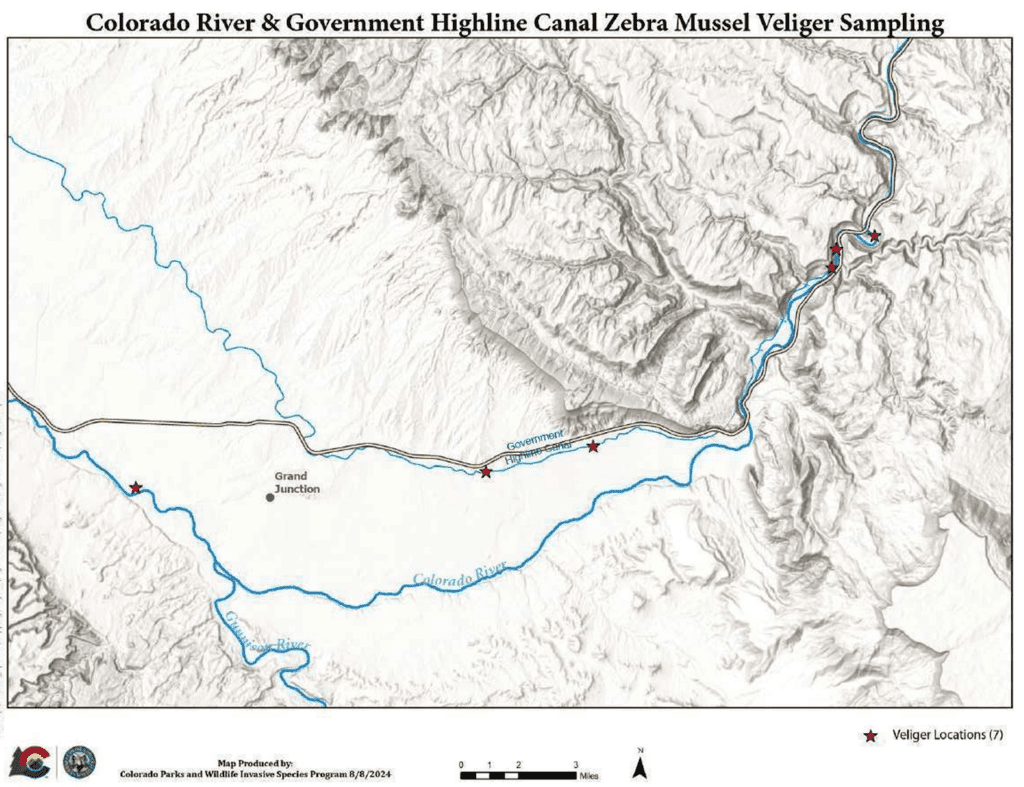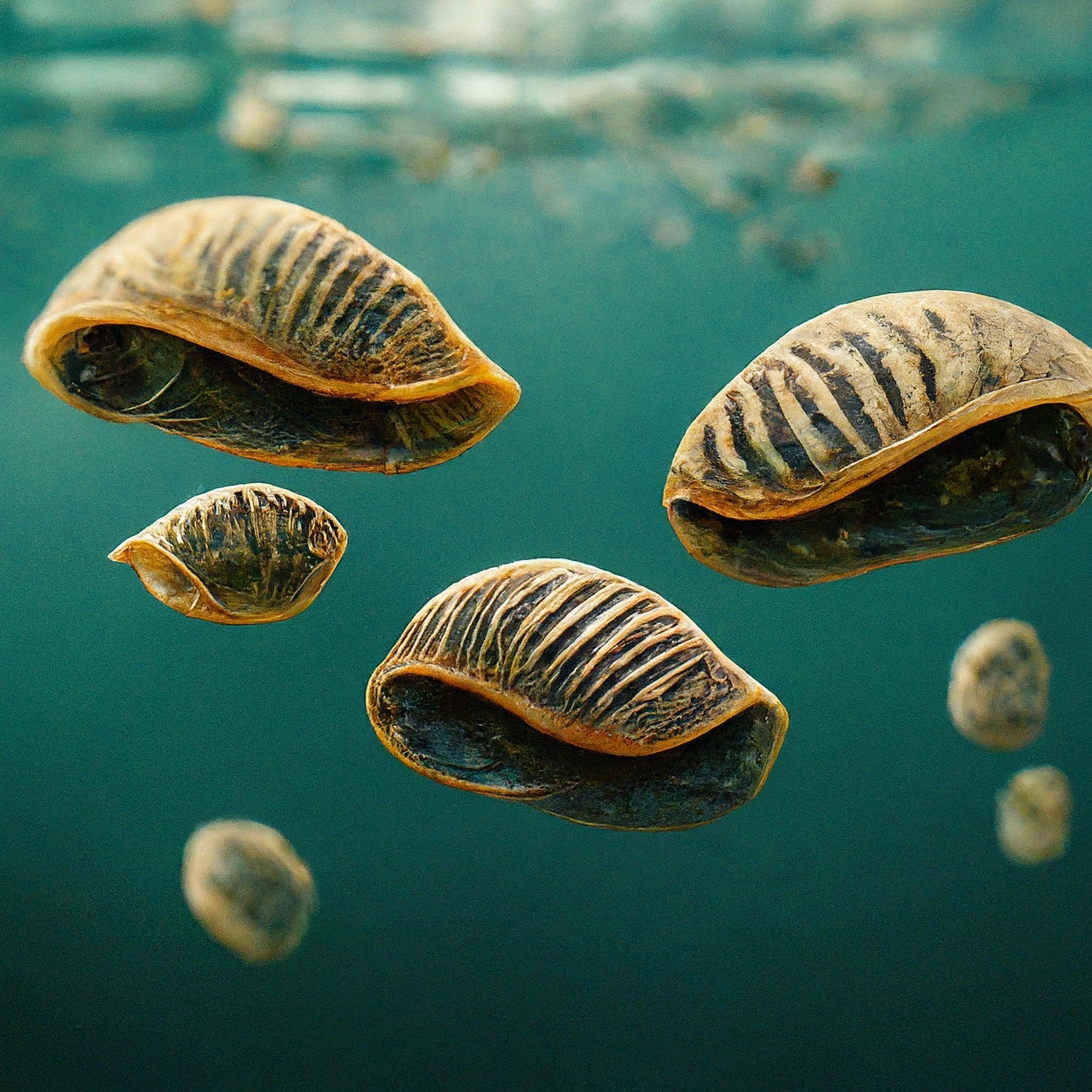- Zebra mussel larvae found in the Colorado River on three separate occasions.
- Colorado Parks and Wildlife declares the river positive for the invasive species.
- Officials are working to locate the source of the mussels and contain their spread.
- Zebra mussels pose a significant threat to the Colorado River ecosystem and water infrastructure.
- The state is ramping up its efforts to monitor and control the invasive species.
- Boaters and water users are urged to take precautions to prevent the spread of mussels.
August 28, 2024 — Colorado faces a new ecological challenge as zebra mussels, a highly invasive species, have been detected in the Colorado River . This discovery has prompted Colorado Parks and Wildlife to declare the river positive for the presence of these mussels, raising concerns about their potential impact on the delicate ecosystem and water infrastructure.
. This discovery has prompted Colorado Parks and Wildlife to declare the river positive for the presence of these mussels, raising concerns about their potential impact on the delicate ecosystem and water infrastructure.
In July, Colorado Parks and Wildlife (CPW) announced the discovery of zebra mussel larvae, known as veligers, in the Colorado River and Government Highline Canal following routine testing.
Zebra mussels, known for their rapid reproduction and ability to disrupt water flow, pose a serious threat to the Colorado River, a vital water source for millions. Officials are actively working to identify the source of the mussels and implement measures to contain their spread. The state has increased its monitoring efforts and urges boaters and water users to take precautions, such as cleaning and drying their equipment, to prevent further contamination. The fight against zebra mussels is a collaborative effort, and the state is seeking partnerships to address this critical issue.
Colorado River ‘positive’ for invasive zebra mussels as wildlife officials hunt for source
by Chase Woodruff, Colorado Newsline
August 22, 2024
Colorado Parks and Wildlife officials have launched an extensive monitoring and public outreach plan following the detection of invasive zebra mussel larvae in several locations along the Colorado River near Grand Junction last month. But their next steps will depend on what they learn about the extent and the source of the invasive population, which could pose an “extreme risk” to local ecosystems and water utilities.
“If they are in a small pond, as an example, there is a completely different arsenal of tools that we may have in our tool belt to try to address that situation than if they are in an open water system like the Colorado River,” Robert Walters, CPW’s invasive species program manager, told a committee of state lawmakers on Wednesday. “Until we identify the source of the population, it’s really difficult to say what those control options might be.”
Zebra mussels are dangerous to water ecosystems because they strip plankton, an essential food source, from the water. Additionally, they can threaten water supplies and irrigation systems by impeding or stopping water flows and attaching to infrastructure, causing millions of dollars in damages and increased maintenance costs.
Walters said that after additional sampling in the last few weeks, the agency now considers the Colorado River to be “positive” for zebra mussels. CPW previously deemed the river and the Government Highline Canal, a 55-mile-long irrigation project that diverts some of the river’s water to farms in the Grand Valley, “suspect” after initial testing detected zebra mussel DNA in early July. The total number of locations where the species has been detected is now seven.
“Our focus now is really on the monitoring,” Walters said. “We want to know where these are coming from and how far they have spread here in the state, as that is going to influence our long-term planning.”

The agency is coordinating its response with the U.S. Fish and Wildlife Service and the U.S. Bureau of Reclamation, which owns the Highline Canal, along with the Army Corps of Engineers, which is conducting a “west-wide boater movement study” to identify how and where contaminated boats may have entered Colorado waterways. Public awareness campaigns and a network of inspection and decontamination stations at popular boating sites are key prevention strategies, Walters said. A 10-second high-pressure spray of hot water is enough to kill and remove zebra mussels that have attached to a boat.
CPW urges anyone using the Colorado River to clean, drain, and dry their vessels and equipment — including boats, rafts, kayaks, paddle boards and fishing equipment — after they leave the water.
So far, no adult zebra mussels have been found in the Colorado River, Walters said — only so-called veligers, the species’ larval form. Public education and awareness will be critical to minimizing the impacts of what for now is a “very low density of veligers that we are detecting,” he said.
“We have had zero positive detection since those last ones in the middle of July,” Walters added. “That doesn’t mean we aren’t continuing to look. We are out there every single week collecting additional samples, trying to identify where these are coming from.”
Colorado Newsline is part of States Newsroom, a nonprofit news network supported by grants and a coalition of donors as a 501c(3) public charity. Colorado Newsline maintains editorial independence. Contact Editor Quentin Young for questions: info@coloradonewsline.com. Follow Colorado Newsline on Facebook and X.
is part of States Newsroom, a nonprofit news network supported by grants and a coalition of donors as a 501c(3) public charity. Colorado Newsline maintains editorial independence. Contact Editor Quentin Young for questions: info@coloradonewsline.com. Follow Colorado Newsline on Facebook and X.


What the heck is that opening image? Those are fake animals, not what mussel larva/veligers look like.